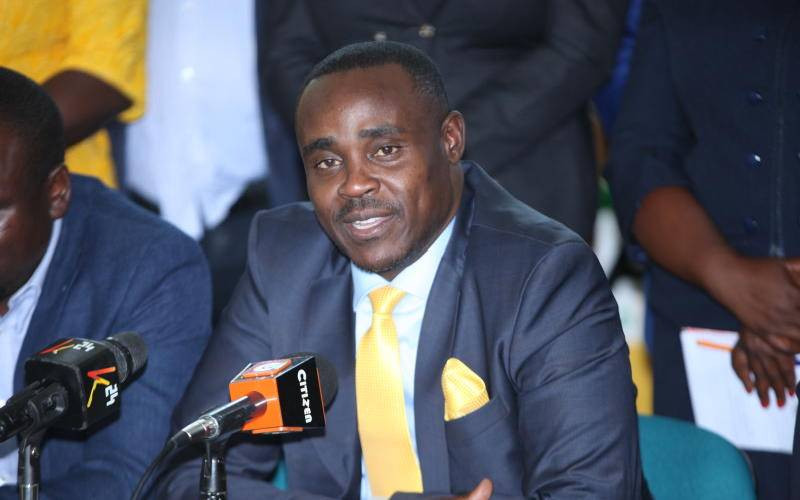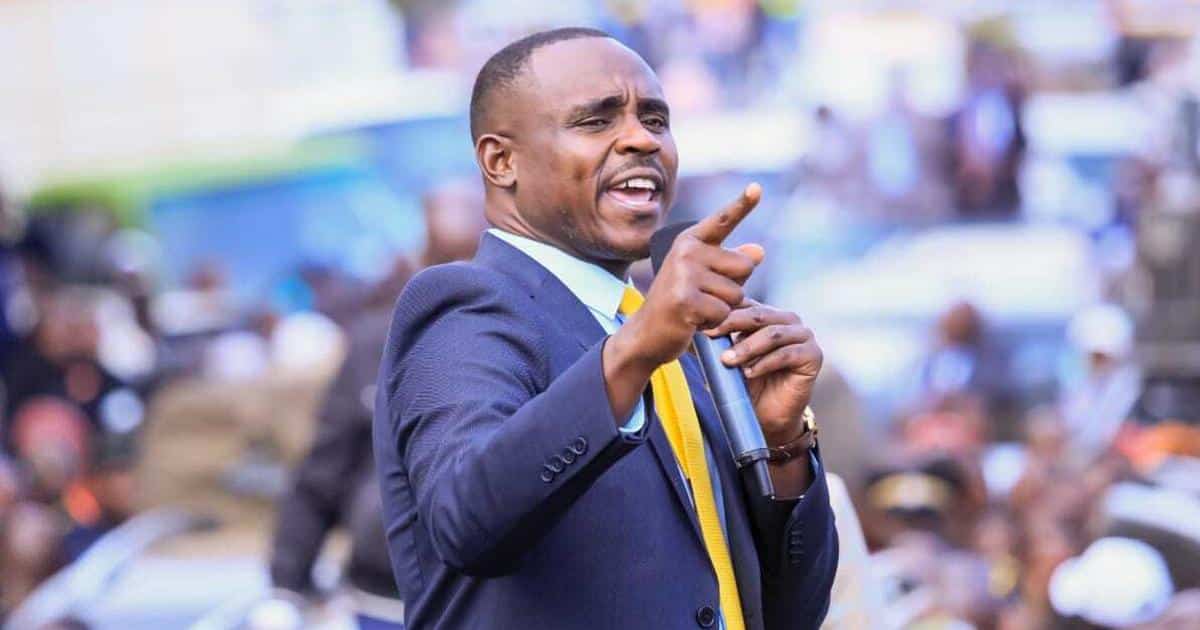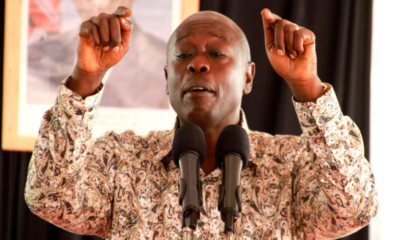Politics
How Cleophas Malala Fumbled His UDA Job

Rapid ascension, blunders, and controversy have marked Cleophas Malala’s political journey.
His recent ouster as Secretary General of the United Democratic Alliance (UDA) is a testament to Kenyan politics’ complex and often treacherous nature.
This article delves into the political reasons and intrigues behind Malala’s rise and fall.
It also explores the roles of key players like President William Ruto, Deputy President Rigathi Gachagua, and Prime Cabinet Secretary Musalia Mudavadi.
The Rise and Fall: The Political Intrigues Behind Cleophas Malala UDA Ouster
Malala’s political career began as a first-time Member of County Assembly (MCA), quickly rising to the position of Kakamega Senator.
Political Blunders and Missteps
Malala’s tenure as Secretary General has been anything but smooth. His lack of longstanding relationships within UDA and his reputation for being a political turncoat undermined his position.
Many UDA members viewed him with suspicion, questioning his loyalty and ability to represent the party effectively.
This skepticism was amplified when Nyeri Governor Kahiga Mutahi threatened Malala with impeachment, highlighting the deep-seated mistrust within the party ranks.
Malala’s decision to leave Mudavadi’s Amani National Congress (ANC) for UDA was seen as a strategic blunder.
Instead of consolidating his base and gaining experience, Malala overreached, believing his rapid rise could continue unabated.
His failure to secure the Kakamega gubernatorial seat should have been a lesson in political patience and prudence.
The Intrigues Behind the Ouster
The political dynamics within UDA and the broader Kenyan political landscape played a significant role in Malala’s downfall.
President Ruto and Deputy President Gachagua are reportedly feuding, with each vying to consolidate power and influence.
Malala’s alignment with Gachagua put him at odds with Ruto’s camp, particularly with figures like Musalia Mudavadi, who hails from the Luhya region—a crucial battleground in the 2027 and 2032 elections.
Both Mudavadi and Gachagua have aspirations to succeed Ruto in 2032, making the Luhya region a critical political chessboard.
Malala, allied with Gachagua, was seen as a tool to undermine Mudavadi’s influence in the region.
This political maneuvering did not sit well with Ruto’s loyalists, who viewed Malala’s actions as a threat to the party’s unity and strategic goals.
The Role of President Ruto and His Allies
President Ruto’s inner circle, often referred to as “Ruto’s boys,” had the power to influence party decisions and appointments.
Cleophas Malala Sabotage and Court Battles
The climax of the internal party conflict came when UDA’s National Executive Committee (NEC) revoked Malala’s appointment as Secretary General.
This decision came despite a court order issued on Thursday, stopping the NEC meeting.
Malala’s petition to the Political Parties Disputes Tribunal highlighted the legal and procedural battles within the party, with Malala accusing UDA Chair Cecily Mbarire and the party of unlawful actions.
The Aftermath and Political Fallout
The NEC’s decision to appoint Hassan Omar as the interim Secretary General was a strategic move to stabilize the party and project unity.
However, the internal conflicts and legal battles have exposed the fragile nature of political alliances and the ruthless quest for power within Kenyan politics.
Cleophas Malala political future remains uncertain
His rise, marked by ambition and miscalculation, serves as a cautionary tale for politicians who seek rapid advancement without solidifying their base and building trust within their parties.
As the 2027 and 2032 elections approach, the power struggle within UDA and the broader political landscape will undoubtedly intensify, with key players like Ruto, Gachagua, and Mudavadi maneuvering for dominance.
Wrapping Up
Cleophas Malala’s journey from MCA to the national political stage is a story of ambition, blunders, and the harsh realities of Kenyan politics.
His ouster as UDA Secretary General underscores the intricate and often brutal nature of political maneuvering.
As Kenya heads towards future elections, the lessons from Malala’s rise and fall will resonate with those who seek to navigate the complex and perilous world of politics.
Kenya Insights allows guest blogging, if you want to be published on Kenya’s most authoritative and accurate blog, have an expose, news TIPS, story angles, human interest stories, drop us an email on [email protected] or via Telegram
-

 Grapevine3 days ago
Grapevine3 days agoAlleged Male Lover Claims His Life Is in Danger, Leaks Screenshots and Private Videos Linking SportPesa CEO Ronald Karauri
-

 Lifestyle6 days ago
Lifestyle6 days agoThe General’s Fall: From Barracks To Bankruptcy As Illness Ravages Karangi’s Memory And Empire
-

 Americas2 weeks ago
Americas2 weeks agoEpstein Files: Bill Clinton and George Bush Accused Of Raping A Boy In A Yacht Of ‘Ritualistic Sacrifice’
-

 Business2 weeks ago
Business2 weeks agoCooking Fuel Firm Koko Collapses After Govt Blocks Sh23bn Carbon Deal
-

 Business2 weeks ago
Business2 weeks agoABSA BANK IN CRISIS: How Internal Rot and Client Betrayals Have Exposed Kenya’s Banking Giant
-

 Investigations1 week ago
Investigations1 week agoEpstein Files: Sultan bin Sulayem Bragged on His Closeness to President Uhuru Then His Firm DP World Controversially Won Port Construction in Kenya, Tanzania
-

 News1 week ago
News1 week agoAUDIT EXPOSES INEQUALITY IN STAREHE SCHOOLS: PARENTS BLED DRY AS FEES HIT Sh300,000 AGAINST Sh67,244 CAP
-

 News2 weeks ago
News2 weeks agoPuzzle Of Mysterious 15 Deaths of Street Children in Nairobi Under A Month and Mass Burials


























